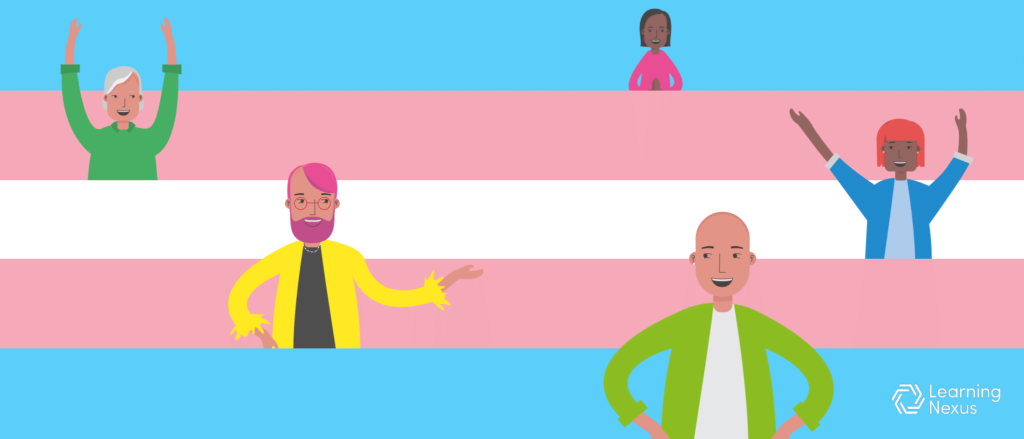
Its #TransgenderAwarenessWeek, making it a great time to celebrate the diversity and fresh perspectives that trans people can bring to your workplace.
For those who aren’t in the community, it can be tricky knowing where to start when it comes to learning more about your LGBTQ+ peers. Which questions are considered invasive, and which are okay? What’s the best way to be respectable and supportive of your colleagues?
In this post, we’ll be talking about some ways you can help support your trans colleagues, and ways you can help create an LGBTQ+ inclusive workplace.
Pronouns
Most of us don’t often think about the way we address ourselves or others. It can be easy to default to gendering people based on their appearance, but it’s important to remember that someone’s outward appearance might not reflect their gender identity, and also, that someone’s identity might change during the time you’re working with them.
When meeting new people, try not to guess, and take the extra time to ask for their pronouns; it may seem awkward at first, but by asking, you allow the other person to choose how they wish to be referred. It can help save for some uncomfortable conversations further down the line if you learn that you’ve been misgendering them this whole time.
Other easy ways to normalise this is by adding pronouns in your email signature. Small things can make a big difference!
Training and support
Discriminatory behaviour can slip through the cracks if no-one is on the look out for them. Include LGBTQ+ training in your induction and regular staff practice to ensure that everyone in your team can learn to recognise and stop discrimination if it happens. Don’t let homophobic or transphobic ‘jokes’ slide and have systems in place to report them if they occur.
Be respectful and open
Understand that some people might not want to be ‘Out’, and this can be for a number of reasons. Just because a colleague is out to you, it doesn’t necessarily mean that they’re out to others. Ask them what they prefer when navigating the workplace and respect it.
That said, don’t feel like you have to hold back on conversation topics once your colleague is out to you. Have the same conversations you’d have with your straight or cisgender colleagues about their personal life – be inclusive! The worst thing that’ll happen will be that they ignore it or that they will tell you to stop.
Don’t expect your colleagues to educate you or others
Wanting to learn more about LGBTQ+ affairs is always admirable, but don’t make your colleagues your only source of information. It can be exhausting for them to educate you on every little thing, especially if they’re just trying to do their job! Imagine if people constantly grilled you about an aspect of your life on a regular basis, tiring, right? Use initiative and research in your own time.
Watch your language
We’re all aware of slurs and abusive language aimed at the LGBTQ+ community, however other word choices can affect so much too. For example, when asking about a person’s partner, do you automatically assume that the other person is cisgender and straight? It may not seem like much, but there’s a huge difference between asking; ‘how did you and your partner meet?’ as opposed to ‘how did you meet your boyfriend?’. If nothing else, it saves the awkward apology that usually follows when the assumption turns out to be wrong.
At the end of the day, it’s okay to make mistakes. No one expects you to be the perfect LGBTQ+ ally from the get go! What matters is that you and your colleagues are making an active effort to create a LBGTQ+ inclusive workplace.
If you would like more information about our Equality and Diversity courses, contact us at hello@learningnexus.co.uk or on 01453 756000.
